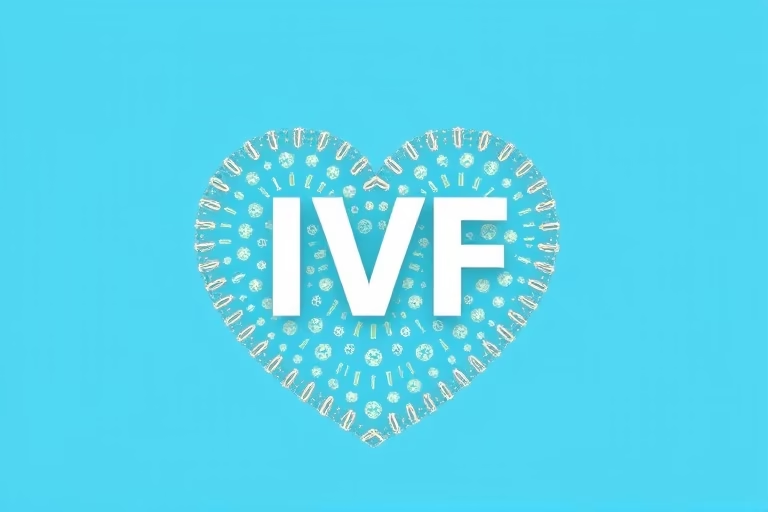We will be talking about National IVF Day. This special day is dedicated to raising awareness about In Vitro Fertilization (IVF) and its pivotal role in assisting individuals and couples facing fertility challenges. Esteemed as a significant medical advancement, IVF offers hope to many who struggle with infertility. On National IVF Day, various organizations and fertility clinics come together to share information, educate the public and celebrate the journeys of those who have experienced IVF. Its purpose is not only to enhance understanding of the IVF process but also to honor the emotional and physical challenges faced by families striving to create or expand their families. This day serves as a reminder of the advancements made in reproductive medicine and the ongoing support needed for people on their fertility journeys.
National IVF Day provides an opportunity for communities to unite in support of those affected by fertility issues, disseminating valuable information about the IVF process, related treatments, and the emotional aspects of facing infertility. It also empowers individuals to seek knowledge, and resources, and utilize support networks that foster a more profound understanding of these challenges. Celebrating this day helps highlight the importance of continued research and development in fertility treatments.
Understanding IVF: A Comprehensive Overview
In Vitro Fertilization, commonly known as IVF, is a fertility treatment that has transformed reproductive healthcare. The IVF process involves the extraction of eggs from a woman’s ovaries, fertilizing them with sperm in a laboratory setting, and then transferring the resulting embryos into the woman’s uterus. IVF can be particularly beneficial for women who experience blocked fallopian tubes, endometriosis, diminished ovarian reserve, or for same-sex couples and single women seeking to conceive. The effectiveness and complexity of IVF have made it a topic of research and discussion worldwide; thus, promoting awareness on National IVF Day is crucial.
The IVF process typically starts with fertility medications, designed to stimulate the ovaries to produce multiple eggs. Once the eggs are mature, they’re retrieved via a minor surgical procedure. The harvested eggs are then combined with sperm under controlled laboratory conditions. After fertilization, embryos are monitored for growth for several days before being selected for transfer. Many patients require multiple cycles to achieve a successful pregnancy, making emotional and financial support critical throughout the process.
Emotional Support and Mental Health During IVF
The journey through IVF is often accompanied by a rollercoaster of emotions. The path can be filled with hopes and dreams, but also uncertainty, anxiety, and disappointment. Recognizing the emotional toll of IVF is essential, as mental health significantly impacts the overall experience. Research shows that individuals undergoing IVF are at risk for depression, anxiety, and stress-related issues.
Support networks, whether from friends, family, or professional counselors, are invaluable for those embarking on the IVF journey. Not only do these resources provide emotional backing, but they can also offer practical advice and coping strategies to manage the various stages of treatment. Many clinics offer psychological support as part of their IVF program, illustrating the importance of nurturing emotional health while navigating fertility treatments.
Practicing self-care during IVF is equally important. Engaging in hobbies, maintaining a balanced diet, and incorporating physical activity can improve mental well-being. Mindfulness techniques such as meditation and yoga have gained popularity among IVF patients for reducing anxiety. Acknowledging one’s feelings, seeking professional help, and having an open dialogue with partners can foster a supportive environment.
Financial Considerations of IVF
Financial aspects of IVF are significant concerns for many individuals. As scraping together funds for fertility treatments can create additional stress, it is essential to have a clear understanding of the costs involved. Expenses associated with IVF can include medications, lab fees, and the consultations needed, with prices varying widely depending on factors such as the clinic and geographical location.
Insurance coverage for IVF treatments is inconsistent and often depends on the state in which one resides. Some states mandate insurance policies to cover certain fertility treatments, including IVF. Exploring available insurance options and payment plans is crucial before commencing treatment. Many clinics offer financing options or can direct patients to financial assistance programs that may help alleviate the burden of high costs.
Additionally, setting a realistic budget for one’s IVF journey is wise. Many patients may require multiple cycles before achieving success, making it important to prepare for the financial impact over time. Seeking comprehensive financial counseling may also help patients evaluate their options more effectively.
Success Rates of IVF
Success rates of IVF are the most significant indicators for individuals considering this treatment. Various factors impact these rates, including age, underlying fertility issues, and the specific clinic’s experience. Generally, younger women tend to have higher success rates, as egg quality plays a pivotal role in conception and embryo development. For women under 35, the success rate can be as high as 40%, but it decreases as age increases.
It is essential to consult with reproductive specialists who can provide personalized data based on individual health profiles. Clinic statistics can vary, so considering success rates in conjunction with qualitative factors, such as patient care and support, is crucial. Prospective IVF patients should actively research their options and inquire about the clinic’s success rates and protocols to make informed decisions.
IVF is not a guaranteed method of conception, and it is essential to prepare for the possibility of unsuccessful cycles. Most couples who undergo IVF often take several cycles before achieving a successful outcome, leading to a diverse range of experiences and emotional responses.
Advancements in IVF Technology
Technological advancements in IVF have dramatically improved success rates and the overall patient experience. Techniques such as Preimplantation Genetic Testing (PGT) have enabled parents to screen embryos for genetic conditions before transfer, reducing the risk of inheritable diseases. Digital resources and platforms have also emerged, providing virtual consultations and streamlined communication between patients and their healthcare providers.
Innovations in cryopreservation technology allow for the freezing and storage of sperm and embryos, enabling more flexible family planning options. Innovations in embryo culture environments and lab technologies have also enhanced the conditions under which embryos develop, further improving success rates. Natural cycle IVF and minimal stimulation IVF are approaches that aim to make the process less invasive and more accessible.
Research continues to explore opportunities to enhance the IVF experience, contributing to tailored treatment protocols that meet the unique needs of diverse individuals. National IVF Day encourages awareness of these advancements while fostering patient empowerment through education.
Choosing the Right Fertility Clinic
Selecting the appropriate fertility clinic is a crucial step in the IVF process. Patients should consider several factors, including the clinic’s success rates, range of services offered, and available support. Researching online reviews and testimonials can provide insights into the experiences of previous patients, highlighting areas of excellence or concern.
Visiting multiple clinics for consultations may also prove beneficial, allowing potential patients to gauge the environment and approach taken by the specialists. A clinic that feels supportive and aligns with one’s values will likely contribute to a more positive experience. Evaluating aspects such as the clinic’s staff, facilities, and services provided can lead to wiser choices.
Determining logistical considerations such as location and expenses associated with appointments and procedures is also important. A clinic’s approach to patient communication, accessibility, and emotional support can significantly affect the overall IVF journey.
The Role of Diet and Lifestyle in IVF Success
Lifestyle factors significantly influence fertility and the success rates of IVF treatments. Maintaining a nutritious diet and a healthy lifestyle can support reproductive health, potentially enhancing the chances of successful fertilization and embryo implantation. Research suggests that diets rich in antioxidants, omega-3 fatty acids, and vitamins can benefit reproductive tissues and overall health.
Limiting processed foods, sugar, and caffeine, and avoiding alcohol and smoking can also promote better outcomes in individuals undergoing IVF. Physical activity plays a significant role in overall health, helping to manage stress and maintain physical fitness. Low to moderate-intensity exercises, such as yoga, swimming, or walking, can be beneficial during this delicate time.
Women undergoing fertility treatments should consult with healthcare providers to develop personalized dietary strategies that align with their unique needs. Lifestyle changes can be daunting, but embracing healthy habits will positively impact the IVF journey and overall well-being.
Final Thoughts
National IVF Day shines a light on the journey of many individuals and couples striving to build their families through In Vitro Fertilization. It’s important to recognize that the IVF process can be both rewarding and challenging, requiring emotional, financial, and physical investments. Education and awareness about the complexities surrounding IVF empower patients to make informed decisions and seek the support they need.
Emotional health plays a significant role during the IVF process, where support systems can alleviate the stresses associated with fertility challenges. Financial considerations are fundamental, and understanding insurance policies and available resources helps ease the path to treatment. Technological advancements continue to shape the future of IVF, making it an innovative field promising ongoing improvements in patient care.
Your choice of fertility clinic is vital; take time to research and select a facility that aligns with your values and needs, enhancing the overall experience. Lastly, lifestyle choices, including diet and exercise, can significantly influence fertility, contributing positively to the IVF journey.
Recognizing the importance of National IVF Day helps foster community support and awareness, as families worldwide pursue their dreams of parenthood. By sharing information and experiences, we can contribute to an environment that normalizes discussions surrounding fertility struggles and success stories.
Frequently Asked Questions
- What is In Vitro Fertilization (IVF)?
IVF is a medical procedure that involves fertilizing an egg outside the body and then transferring the embryo to the uterus.
- Is IVF suitable for everyone?
IVF is beneficial for individuals and couples facing infertility issues, but consulting with a fertility specialist is necessary to determine suitability.
- How can I prepare for an IVF cycle?
Maintaining a healthy lifestyle, diet, and discussing emotional support options are essential preparations for an IVF cycle.
- Are there any side effects of IVF?
Common side effects can include bloating, cramping, and changes in mood, but many side effects are manageable.
- What is the success rate of IVF?
Success rates vary by age and the clinic but can be up to 40% for women under 35. Discussing specifics with a fertility specialist is vital for individual assessment.
Further Reading
What Type of Psychotherapy Is Best for Anxiety?







